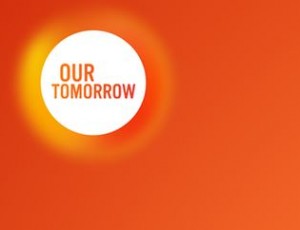WASHINGTON, DC – LGBTQ Americans have much to celebrate in growing public acceptance and legal victories in recent years, but many worry these gains might be lost in the face of a conservative backlash. This insight on the “tempered optimism” of LGBTQ Americans emerged from a crowdsourcing campaign designed to understand the hopes, fears and ideas on the minds of LGBTQ people across the country.
 Our Tomorrow is the first campaign of its kind to engage people nationwide in a conversation about the future of the movement. Supported by more than 140 organizations, the conversation revealed 52 issues on the minds of more than 5,000 participants from all 50 states—from “acceptance” and “aging” to the “workplace” and “youth.”
Our Tomorrow is the first campaign of its kind to engage people nationwide in a conversation about the future of the movement. Supported by more than 140 organizations, the conversation revealed 52 issues on the minds of more than 5,000 participants from all 50 states—from “acceptance” and “aging” to the “workplace” and “youth.”
The full analysis of the conversation can be viewed at shareourtomorrow.org/lgbt-conversation-insights/.
“Our Tomorrow enabled LGBTQ people everywhere to engage in an open and wide-ranging conversation about our future at a crucial time in our history,” said Our Tomorrow campaign manager Lee Swislow. “There is unmistakable optimism about all we’ve accomplished—and awareness that much remains to be done.”
The findings represent one of the largest and broadest datasets ever created about the concerns of LGBTQ people, which The Advocate magazine said presents “a clearer picture than ever before of the U.S. LGBT community.” The information is intended to help inform the ongoing work of participating organizations, which ranged from national nonprofits to local community centers.
“Our hope is that these findings inform the work of organizations and individuals working to improve the lives of LGBTQ people everywhere,” said Kevin Jennings, executive director of the Arcus Foundation, which helped fund the campaign. “Our Tomorrow engaged the full diversity of the LGBTQ community — from all parts of the country and all walks of life. As a movement, it’s important that we listen to and learn from what they had to say.”
The campaign collected 14,509 hopes, fears and ideas from 5,663 individuals in all 50 states—including a significant number of participants from often overlooked and underrepresented groups. Because the responses were open-ended, researchers trained in linguistic analysis spent weeks interpreting the results.











